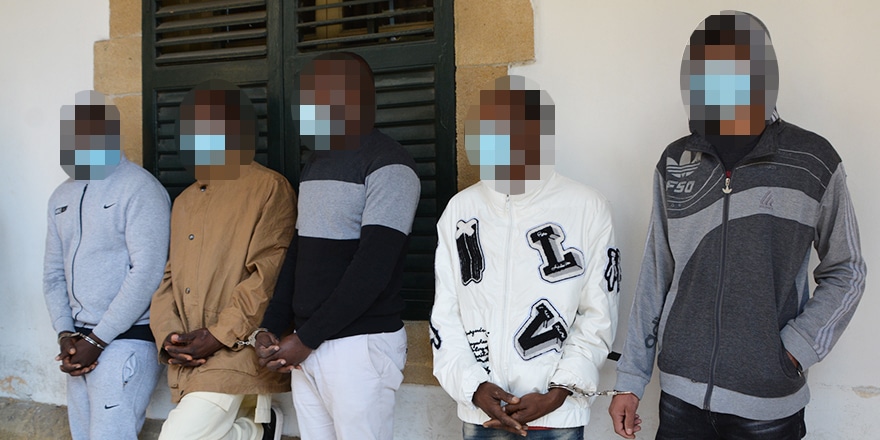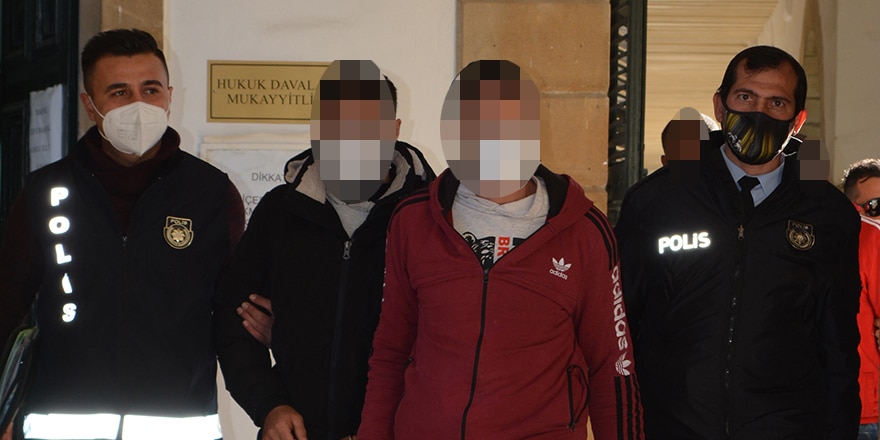Many students never attend university and are either trafficked or enter the Republic
By Esra Aygin
The ease with which student visas are issued, the inadequate legal framework, and the general lack of controls in the northern part of Cyprus is increasing human smuggling and trafficking through universities.
There are 22 universities there, which has a population of less than 500,000, hosting some 104,000 students on paper. Close to half of these students are from third countries in the Arabian Peninsula, Africa, Middle East, and Far East. They come to the northern part of Cyprus on a student visa, which is very easy to get.
All any prospective student needs to do is to make an online application to any of the universities, pay the fee and register, explains education expert and academic Salih Sarpten. Once they are registered with a university, they get a plane ticket and arrive at Ercan/Tymbou airport, where they are given a one-year student visa when they show the printout of the proof of the university registration.

“Once they are in the country, there is no mechanism to check where they are or what they are doing,” says Sarpten. This coupled with the inadequate legal framework has allowed many students to “disappear”.
“A considerable number of new students on the list handed to the academics at the beginning of the year, are missing from the classroom,” said Sarpten.
Fezile Osum, who is the Anti-Trafficking and Refugee Rights programme coordinator at the Turkish Cypriot Human Rights Platform, underlines that these students are largely in the hands of human traffickers and human smugglers.
Nazim Cavusoglu, who is responsible for the education dossier, recently told the AFP news agency that there are some 15,000 “passive” students, who have entered the country on a student visa, but are not attending any classes. Sarpten believes the number of students unaccounted for is no less than 30,000.
“Thirty per cent of the total number of students is missing,” said Sarpten. “Which suggests that they are either employed in the black economy; they are in the hands of human traffickers engaged in illegal activities such as sex or drugs trafficking; or they have already found their way into the European Union” through human smugglers across the porous Green Line dividing the island.
The higher education sector, which is one of the main engines of the Turkish Cypriot economy, has grown in an uncontrolled fashion in the last two decades as the policy has been to open as many universities and attract as many foreign students as possible.
“Higher education here is an economic sector,” says Sarpten. “Universities survive not on science, research, or patents, but on the money from students.”
This has led universities, some of which are owned by big businessmen, who in some cases also own casinos, to work with agents to find prospective students mainly from impoverished third countries and bring them to the universities. In return they get a commission.
Human trafficking
The ease with which student visas are issued, and lack of controls or supervision over whether individuals on a student visa are indeed going to school, have given rise to malicious agents, who take advantage of the system to exploit students. According to the US State Department’s Trafficking in Persons Report in 2022, in many cases, these agents falsely promise students low tuition fees, accommodation and access to good jobs in an EU member state. Once in the northern part of Cyprus, they end up being exploited as cheap labour, or forced into prostitution or drug trafficking.

Osum explained that out of 23 identified human trafficking victims in 2022, 18 of them had entered the island with student visas.
Last year, a Turkish rights group and the Nigerian National Agency for the Prohibition of Trafficking in Persons (NAPTIP), published a communique calling the northern part of Cyprus a “heaven for the traffickers who operate unrestrained”.
“Students can receive visas mostly with just a proof of university registration,” the communique explained. “It has been understood that the human traffickers have been abusing this procedure.”
The student visa can easily be renewed by re-registering in different higher education institutions while on the island.
Human smuggling
Human smugglers also exploit the ungoverned higher education sector to offer young people on a student visa a path to Europe.
“Not all of these students come here to study,” said Sarpten. “A significant number of them want to leave the difficult conditions in their countries… They take advantage of the simple student visa procedure to come here, and once they are here, they try to find ways to get into the Republic of Cyprus or other European Union member states.”
“We witness this a lot in the field,” Osum agreed. “Because student visas are very easy to get, the students come here to the north, and then cross to the south with the help of smugglers. We also know that the people applying for asylum in the Republic of Cyprus are mostly those, who arrive on the island using universities and student visas.”
Figures from the United Nations High Commissioner for Refugees (UNHCR) confirm this trend. From January to March 2023, some 3,182 persons have applied for asylum in the Republic of Cyprus.
“It is etablished that the vast majority of the asylum seekers in Cyprus arrive via the north,” UNHCR communications officer Emilia Strovolidou told the Sunday Mail.
Strovolidou explained that as of 2020, increased numbers of refugees and migrants from Africa and Asia arrive by air in the northern part of Cyprus on student visas and then clandestinely cross to the Republic of Cyprus to apply for asylum.
In fact, last August, two Bangladeshi nationals were held up around the Yigitler Burcu/Roccas (Kaytaz) Bastion in Nicosia as they were attempting to cross to the Republic of Cyprus. The two men had paid smugglers €6,000 each and had been brought to the north on student visas issued in their names after they were registered in a university. For another €150 each, they were taken to the Yigitler Burcu and instructed to cross the Green Line to the Republic of Cyprus. Police believe the same smugglers have brought 322 Bangladeshis to the northern part of Cyprus through this scheme during the 2021-2022 academic year by registering them with five different higher education institutions.
“There is no population policy,” Sarpten emphasised. “There is no higher education policy. There is no policy on how many foreign students will be admitted in universities. There are no university entry criteria. All this is an invitation for the human traffickers and human smugglers.”

